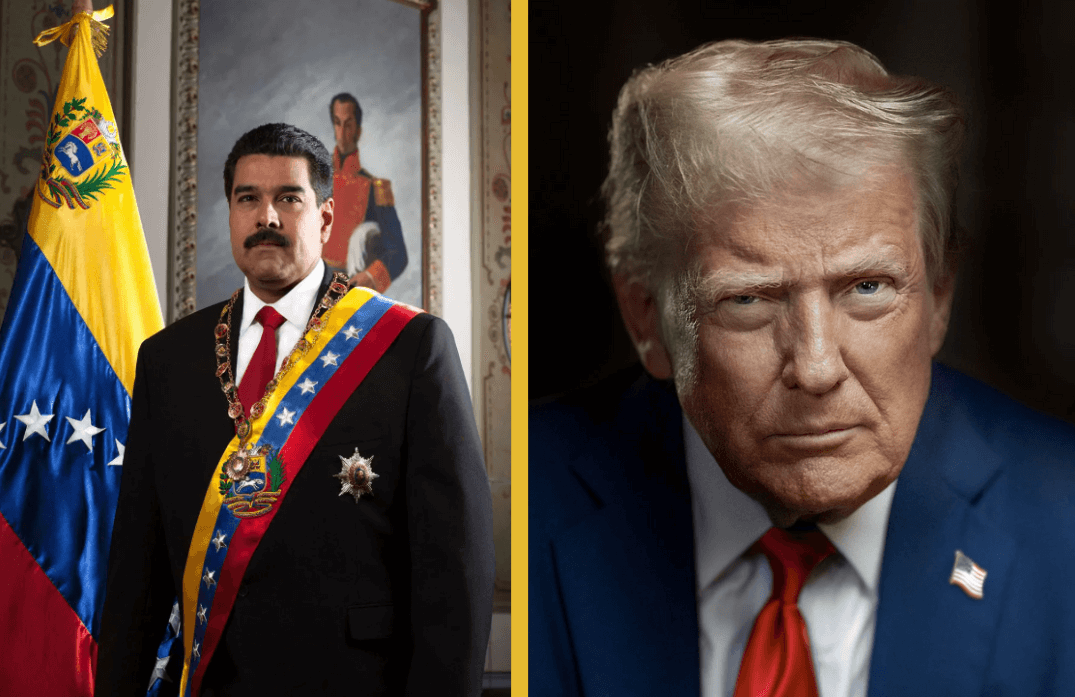The relationship between Donald Trump Venezuela is one of the most debated chapters in recent U.S. foreign policy. During his presidency, Trump adopted a hardline approach that reshaped Venezuela’s economic, political, and humanitarian trajectory. From sanctions and oil export bans to controversial decisions on TPS (Temporary Protected Status) and deportations, his policies left a lasting mark on Venezuelan migrants, U.S. businesses, and global diplomacy. This article explores the complexities of Trump Venezuela strategy, its motivations, outcomes, and implications for the future, including how it may influence the 2024 political landscape.
Early U.S.–Venezuela Relations Before Trump
To understand Trump’s approach, it is essential to look at prior U.S.–Venezuela relations. Before 2017, Washington had already imposed sanctions on Venezuela due to human rights violations and corruption under Hugo Chávez and Nicolás Maduro. The Obama administration declared Venezuela a national security threat in 2015, laying the groundwork for Trump’s more aggressive actions. Trump’s presidency amplified this pressure, signaling a shift from containment to active confrontation with the Maduro regime.
Donald Trump’s First Moves on Venezuela
Upon assuming office, Donald Trump prioritized Venezuela as part of his broader campaign against socialism. His administration quickly ramped up sanctions, targeted high-ranking officials, and recognized Juan Guaidó as Venezuela’s legitimate leader in 2019. These measures were seen as both a foreign policy stance and a political message to his base, which included strong anti-socialist Cuban and Venezuelan communities in Florida. Trump’s tone was uncompromising: he labeled Maduro a “dictator” and called for “freedom for the Venezuelan people.”
Trump Venezuela Sanctions: The Harshest in Decades
One of the most defining aspects of Trump’s policy was sanctions on Venezuela. These sanctions targeted oil exports, gold trade, and financial transactions, effectively isolating Venezuela from global markets. Supporters argued they were necessary to pressure Maduro’s authoritarian government, while critics claimed they worsened the humanitarian crisis by limiting food and medicine imports. The sanctions led to a collapse in Venezuela’s GDP, further fueling migration to the U.S. and other countries.
Trump Venezuela Oil Policy and Economic Pressure
The U.S. once imported large amounts of Venezuelan oil, but Trump’s restrictions disrupted this long-standing trade. By revoking Venezuela’s oil export permit, the Trump administration cut off the regime’s primary source of revenue. This policy was symbolic of Trump’s “maximum pressure” strategy, aimed at crippling Maduro’s grip on power. However, the move also impacted American companies reliant on crude imports, raising questions about balancing foreign policy goals with domestic economic needs.
Trump Venezuela Oil Export Permit: The Turning Point
The revocation of the oil export permit in 2019 marked a critical turning point. U.S. companies like Chevron were forced to halt operations, while Venezuela turned to allies like Russia and China. The decision reshaped global energy markets and became a cornerstone of Trump’s strategy. Supporters praised it as a bold stand against authoritarianism, while opponents saw it as a gamble that worsened suffering for ordinary Venezuelans.
Trump Venezuela TPS: A Lifeline for Migrants
As Venezuelans fled their collapsing country, many sought refuge in the U.S. through Temporary Protected Status (TPS). Initially, Trump faced criticism for hesitating to extend protections. By 2021, under mounting pressure, his administration granted TPS to Venezuelans, offering legal status and work permits to hundreds of thousands. For many families, this was a turning point that provided safety and stability in an otherwise uncertain migration journey.
Trump Venezuela TPS Revocation Debate
The issue of TPS revocation became a political flashpoint. While Trump eventually granted TPS, his critics pointed out that his administration simultaneously pushed for stricter immigration policies and considered withdrawing such protections. This created fear among Venezuelan communities, who worried about deportation even while TPS was in effect. The back-and-forth highlighted the tension between Trump’s anti-immigration stance and his political need to appeal to Latino voters sympathetic to Venezuelan refugees.
Trump Venezuela Deportations: A Humanitarian Dilemma
Another controversial aspect of Trump’s policies was Venezuelan deportations. His immigration enforcement strategy prioritized deportations across the board, but with Venezuela, the situation was complex. Because the U.S. did not recognize Maduro’s government, coordinating deportations became nearly impossible. Many Venezuelans lived in limbo, uncertain of their legal future. Human rights groups criticized Trump for threatening deportation despite acknowledging the dangers in Venezuela.
Trump Venezuela Deportation Policies in Practice
Though large-scale deportations were limited, the fear of deportation under Trump was real for Venezuelan families. Immigration raids, legal uncertainty, and TPS debates kept communities anxious. Trump often used strong rhetoric, suggesting that Venezuelans could be deported if they violated U.S. laws. Critics argued that this approach lacked compassion, while supporters believed it was consistent with his “law and order” stance.
Trump Venezuela Travel Ban and Immigration Restrictions
At the height of his presidency, Trump expanded the U.S. travel ban to include certain restrictions affecting Venezuelan government officials and their families. Although not a full ban on ordinary Venezuelan citizens, the move sent a political signal. It was designed to limit the Maduro regime’s influence abroad but also sparked outrage from those who viewed it as punishing innocent Venezuelans. The travel ban became part of the broader immigration narrative tied to Trump’s presidency.
Trump Venezuela News Coverage and Public Perception
Throughout his presidency, Trump Venezuela news dominated headlines. Media outlets debated whether Trump’s hardline approach was a moral stand or a politically motivated strategy. Stories highlighted the impact of sanctions, the migrant crisis, and Trump’s dramatic speeches. Venezuelan-American communities in Miami became a political battleground, with Trump using his stance to secure Latino support. Internationally, allies were divided, with some praising the pressure on Maduro while others condemned the humanitarian fallout.
Humanitarian Impact of Trump’s Policies
The humanitarian consequences of Trump’s Venezuela strategy were profound. While his goal was regime change, the ordinary Venezuelan population bore the brunt of sanctions and economic isolation. Shortages of food, medicine, and basic supplies worsened. At the same time, TPS offered relief for some migrants, creating a dual narrative of hardship and opportunity. Emotional stories of families torn apart by migration highlighted the human cost of political decisions.
Trump Venezuela 2024: A Campaign Talking Point
As Trump campaigns for 2024, Venezuela remains part of his foreign policy narrative. He frequently invokes his tough stance as proof of his leadership against socialism and authoritarian regimes. His critics argue that the strategy failed to remove Maduro and left Venezuela in deeper crisis. Nevertheless, the issue continues to resonate with Cuban-American and Venezuelan-American voters in key states like Florida, making it a likely theme in upcoming debates.
Lessons from Trump’s Venezuela Approach
Trump’s Venezuela policies reflect broader lessons in U.S. foreign policy. They demonstrate the challenges of balancing human rights advocacy with humanitarian concerns. The sanctions showcased American power but also revealed the unintended consequences of economic isolation. The TPS decision showed the tension between immigration enforcement and political necessity. Ultimately, Trump’s approach to Venezuela remains a case study in the complexities of international diplomacy.
Emotional Turning Points for Migrants
For Venezuelan migrants, Trump’s policies created emotional highs and lows. The fear of deportation contrasted with the relief of TPS protections. Families lived in uncertainty, torn between gratitude for safety and anxiety over policy shifts. These emotional turning points highlight the deep human impact of foreign policy decisions that often appear abstract in political debates.
International Reaction to Trump’s Strategy
Global leaders responded differently to Trump’s Venezuela policies. European allies supported sanctions but urged humanitarian exemptions. Russia, China, and Iran increased their support for Maduro, filling the gap left by U.S. disengagement. Latin American countries struggled with massive Venezuelan migration flows, sometimes criticizing Washington for worsening the crisis. The international reaction underscores how U.S. decisions reverberated far beyond its borders.
Trump’s Legacy in Venezuela Policy
The legacy of Donald Trump’s Venezuela strategy is one of controversy and complexity. Supporters celebrate his hardline stance as a moral stand against tyranny. Critics see it as a failed attempt at regime change that deepened suffering. For Venezuelan migrants, it is remembered as a mix of fear, uncertainty, and eventual relief under TPS. For policymakers, it remains a blueprint of both boldness and cautionary lessons.
Conclusion: The Lasting Impact of Trump Venezuela Policies
The story of Trump and Venezuela is not just about sanctions, oil, or politics—it is about people. Behind every policy decision are families seeking safety, economies struggling for survival, and communities divided by ideology. Whether history views Trump’s Venezuela strategy as bold leadership or reckless confrontation will depend on future developments. What is certain is that the emotional and political weight of these policies continues to shape the present and will echo into the 2024 election and beyond.




